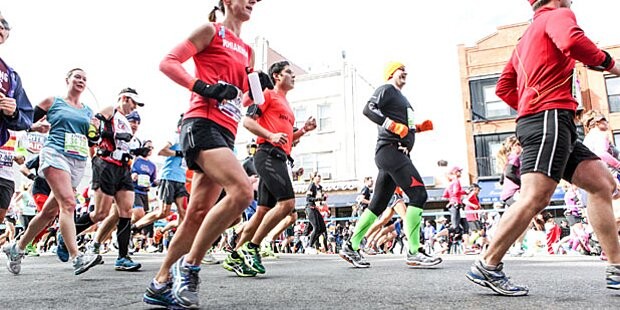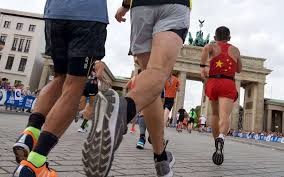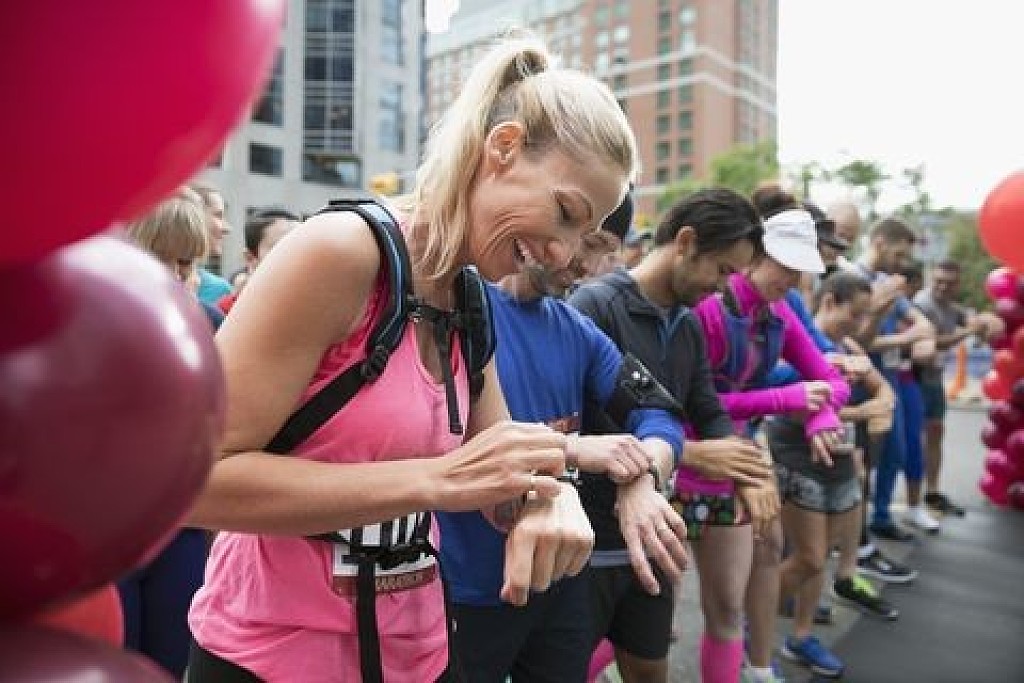Running News Daily
Running News Daily is edited by Bob Anderson. Send your news items to bob@mybestruns.com Advertising opportunities available. Train the Kenyan Way at KATA Kenya and Portugal owned and operated by Bob Anderson. Be sure to catch our movie A Long Run the movie KATA Running Camps and KATA Potato Farms - 31 now open in Kenya! https://kata.ke/
Index to Daily Posts · Sign Up For Updates · Run The World Feed
Last-minute marathon tips that can make a huge difference on race day
Running a marathon is one of the most satisfying accomplishments. To get a taste of that sweet satisfaction of crossing the finish line, you’ll have to put in some hard work, though. That means consistent training to get the long runs right and tapering during the last weeks leading up to the event. You’ll also want to find the best ways to give you that final push right before and during your marathon. And let’s not forget, there is life after the marathon and for your own sake, kick-off “the afterlife” with investing in recovery.
Let’s start with a couple of basic marathon concepts to set the scene and then move on to last-minute marathon tips that can make a huge difference on race day.

HITTING THE WALL
Hitting the wall, also known as ‘bonking’, is the term used to describe running out of energy.
The human body can store a limited amount of energy which will run out if carbohydrates aren’t consumed during prolonged exercise. In long-endurance efforts, like the marathon, this can manifest as sudden fatigue, lack of energy, heavy legs, and/or a sudden drop in pace.

What can you do to avoid it? ‘Hitting the wall’ is not a prerequisite of finishing a marathon! Carbohydrate loading and taking on carbohydrates during the marathon will help to make sure you don’t run out of energy.
CARBOHYDRATE-LOADING
You may have heard or read about carbohydrate loading. What does it mean? Does it work? Is it relevant and should I be doing it?
Yes, it works, it is relevant for marathon runners and you should employ this strategy.
Our understanding of how to implement this has changed quite a lot since the initial research on the subject was carried out on the military back in the 60s. Essentially you’re looking to increase the amount of carbohydrate you consume in the few days leading up to the marathon to ensure your fuel levels are topped up.
Whether you’re an elite or amateur, carbohydrate is the predominant fuel source you use during running. As our our bodies can store only a limited amount of carbohydrates, topping up those fuel storages before the race will help you avoid the onset of fatigue.
With all this in mind, here are some last-minute marathon tips for the 24 hours before, during, and after your race. These will go a long way to ensure you have an awesome marathon.
To start, the golden rule is: Don’t try anything new on race day! Stick to meals you like and are used to, use the same clothing, socks, shoes and music playlist you’ve used in training. Don’t worry about what anyone else is doing, be confident in your own preparation, knowing what works well for you and stick to that.
1. EAT WELL THE NIGHT BEFORE
The night before your race eat a meal you enjoy and are used to. Aim for a meal that is rich in carbohydrates, this could include foods like pasta, rice, bread, potatoes.
A good evening meal will ensure you have enough carbohydrates stored in your muscles and liver before race day. Carbohydrates are basically the petrol for your engine on the big day so filling up that tank will reduce the risk of fatigue during the race.
2. AVOID EATING TOO CLOSE TO BEDTIME
Aim to have dinner earlier in the evening before the race. Make sure you plan ahead to avoid rushing this meal – giving your body time to digest the meal and relax should hopefully mean you get a good night’s sleep which is, obviously, crucial.
3. CARBOHYDRATES ARE KING AT BREAKFAST
Similar to the night before, priming the body with carbohydrates at breakfast is a way to ensure your performance doesn’t suffer during the race. Stick to a breakfast and foods you’re used to and have practiced in training. Porridge, toast, cereal, bagels, and fruit juice are all great choices.
4. REDUCE FAT AND FIBER
Keep fiber and fat to a minimum when having your race day breakfast as we know this can cause upset stomachs during the race. This simple tip will ensure you’re in top condition for the challenge ahead and hopefully, reduce the chance of any unnecessary toilet stops.
by Colorado Runner
Login to leave a comment




